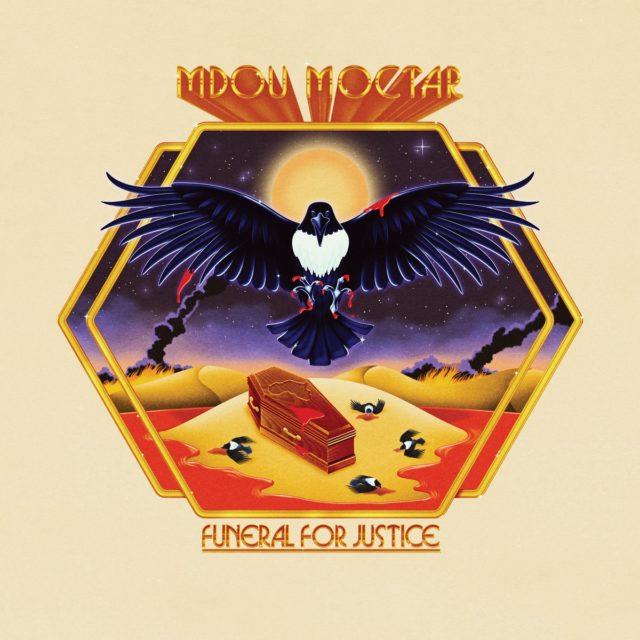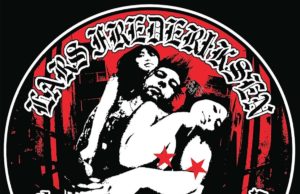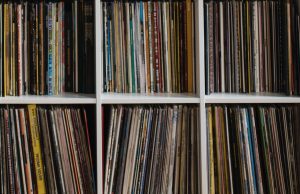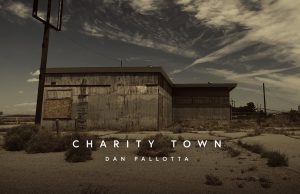THE EDITED PRESS RELEASE: “Funeral For Justice is the new album by Mdou Moctar. Recorded at the close of two years spent touring the globe following his 2019 breakout Afrique Victime, it captures the Nigerien quartet in ferocious form. The music is louder, faster, and more wild. The guitar solos are feedback-scorched and the lyrics are passionately political. Nothing is held back or toned down.
The songs on Funeral For Justice speak unflinchingly to the plight of Niger and of the Tuareg people. “This album is really different for me,” explains Moctar, the band’s singer, namesake, and indisputably iconic guitarist. “Now the problems of terrorist violence are more serious in Africa. When the U.S. and Europe came here, they said they’re going to help us, but what we see is really different. They never help us to find a solution.”
“Mdou Moctar has been a strong anti-colonial band ever since I’ve been a part of it,” says producer and bassist Mikey Coltun, who has been playing with Moctar since 2017. “France came in, fucked up the country, then said ‘You’re free.’ And they’re not.” The song Oh France tackles this head on: “France’s actions are frequently veiled in cruelty / We are better off without its turbulent relation / It’s high time we grasp the endless lethal games it plays.”
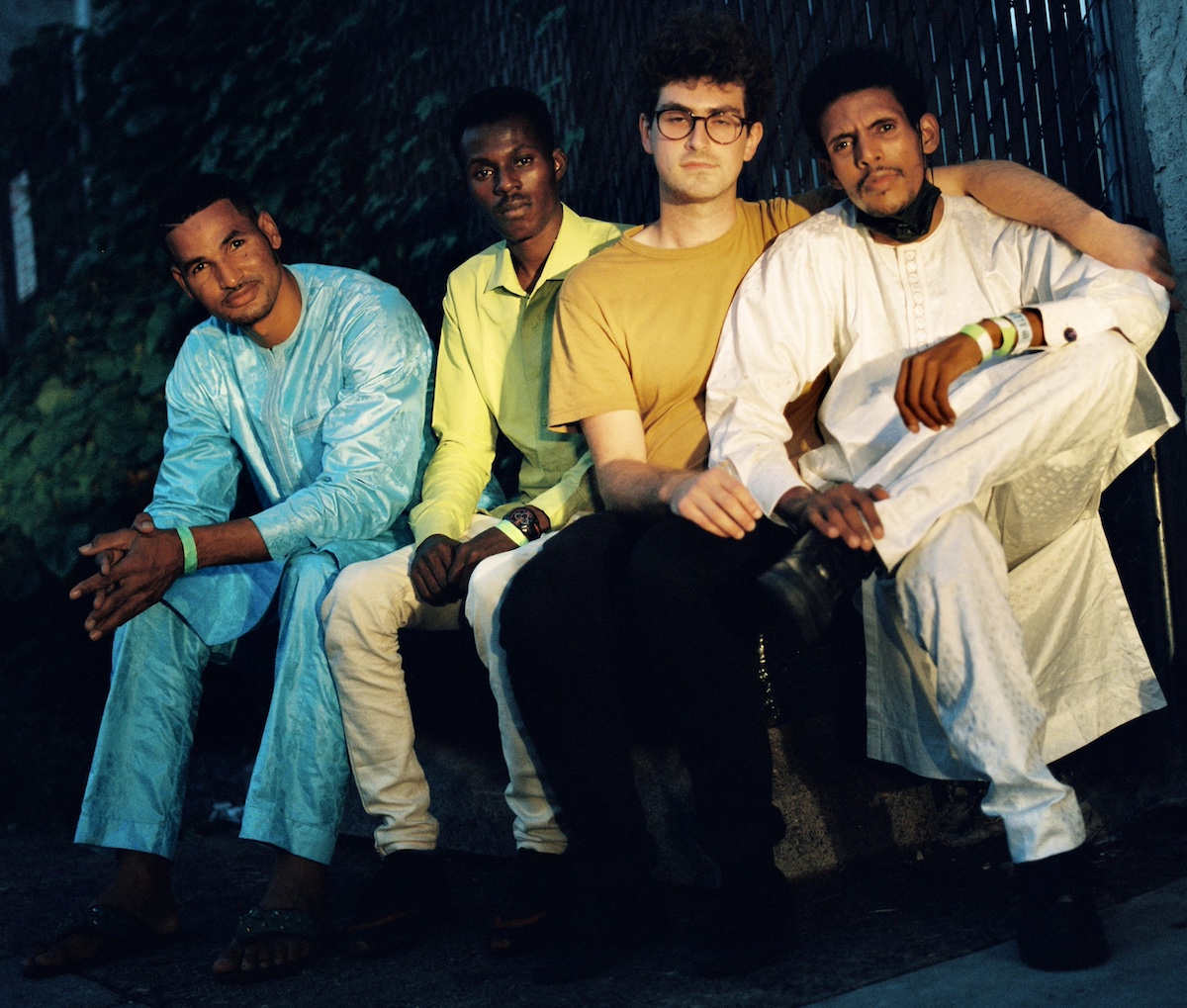
On the lead single and title track, Moctar addresses African leaders directly, bidding them: “Retake control of your resource-rich countries / Build them and quit sleeping.” Meanwhile, Sousoume Tamacheq deals with the plight of the Tuareg people to which the band belong, and who are mainly spread across three countries: Niger, Mali and Algeria.”Oppressed in all three / In addition to lack of unity, ignorance is the third issue.” Another song, Imouhar, calls on the Tuareg to preserve their Tamasheq language — it’s at risk of dying out, and Mdou is one of the few in his community who knows how to write it. “People here are just using French,” laments Mdou. “They’re starting to forget their own language. We feel like in a hundred years no one will speak good Tamasheq, and that’s so scary for us.”
Mdou Moctar in its current iteration is first and foremost a band. Alongside Moctar, it consists of rhythm guitarist Ahmoudou Madassane, drummer Souleymane Ibrahim, and American Coltun. The band got their start performing at traditional weddings. These are high-energy events — amps are dialed up to 11 and the whole town is invited to attend. “I grew up in the D.C. punk scene and this is no different,” explains Coltun. “It’s a DIY punk show: People bring generators, they crank their amps. Things are broken, but they make it work.”
Conveying that energy and feeling of community to a new audience has been an important goal for the band. Their first concerts in the U.S. were sometimes, mistakenly, organized to be tame seated affairs. That’s no longer the case. Over hundreds of shows, they’ve proven themselves as one of the world’s most vital rock bands — a group rooted in Tuareg tradition, but undeniably its own singular organism. A Mdou Moctar concert is now recognized to be a place for dancing, if not full-force moshing.
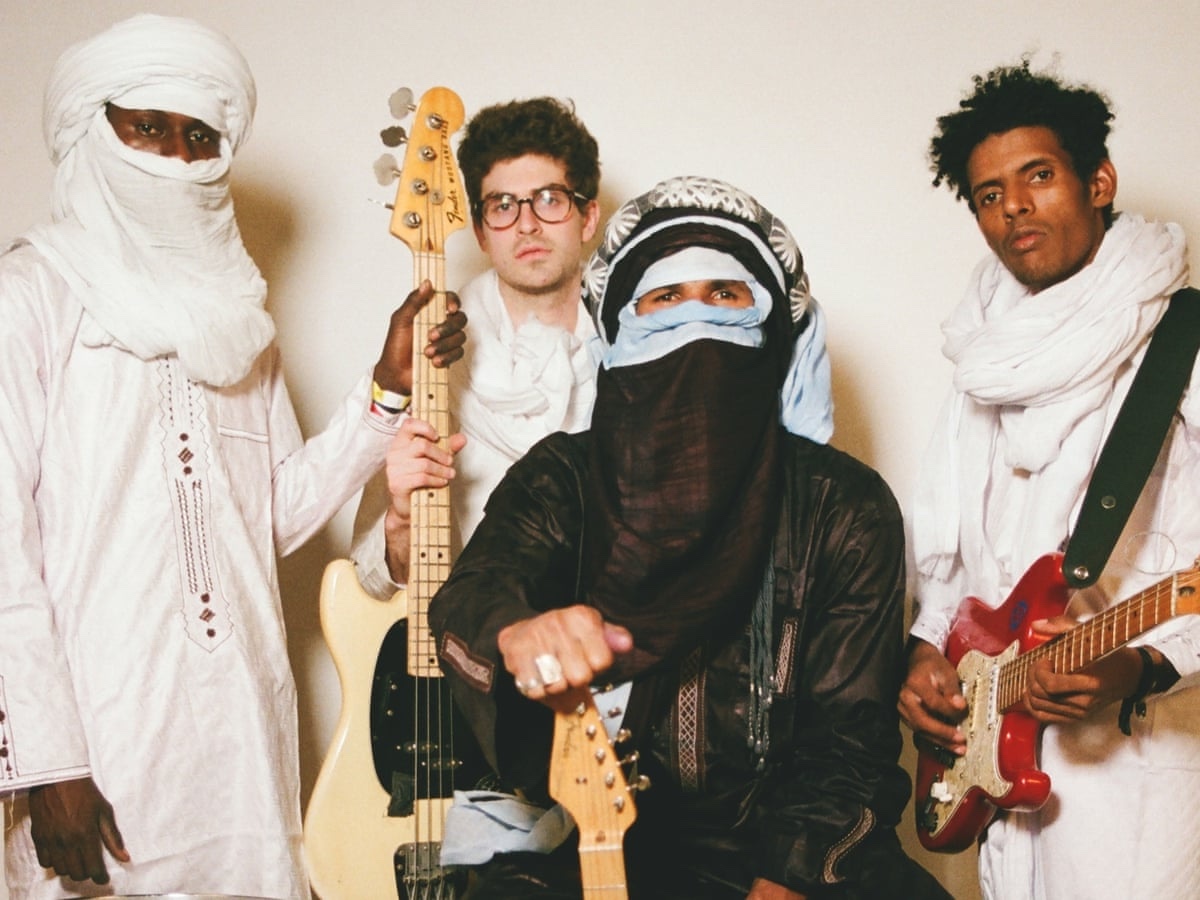
“Ilana was the gateway album, saying that this is a raw rock band. And Afrique Victime was a summation of that vision,” says Coltun, who captured the bulk of the recordings over five days in a mostly unfurnished house in upstate New York. “With Funeral For Justice, I really wanted this to shine with the political message because of everything that’s going on. As the band got tighter and heavier live, it made sense to capture this urgency and this aggression — it wasn’t a forced thing, it was very natural.”
In July 2023 — after Funeral For Justice had been completed — Niger’s democratically elected government was deposed in a military coup. The president was placed under house arrest and the nation plunged into a state of chaos and uncertainty. The French have withdrawn. The area continues to be threatened by terrorism. The band — then on tour in the U.S. — were, for a time, unable to return to their families.
“I don’t support the coup,” explains Mdou, “but I never in my life liked France in my country. I don’t hate France or French people, I don’t hate American people either, but I don’t support their manipulative policies, what they do in Africa. In 2023 we want to be free, we need to smile, you understand?”














